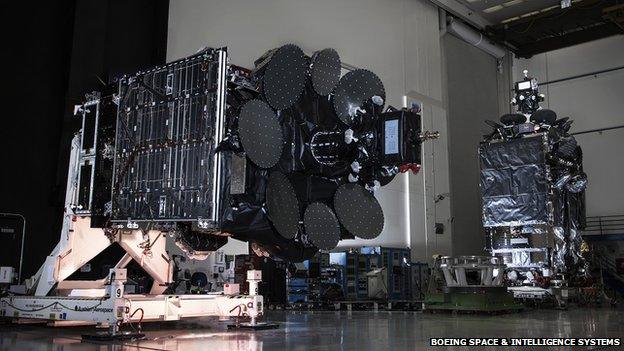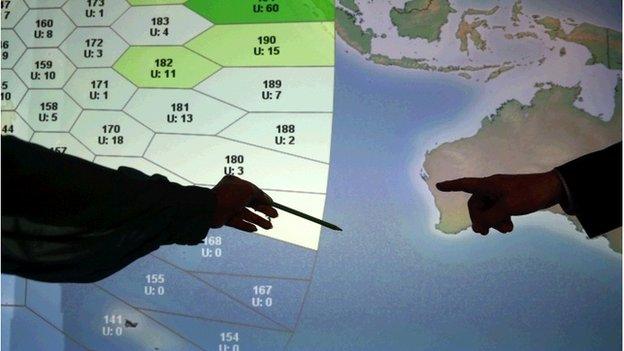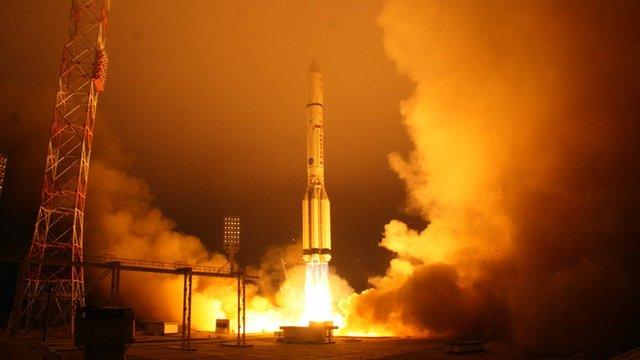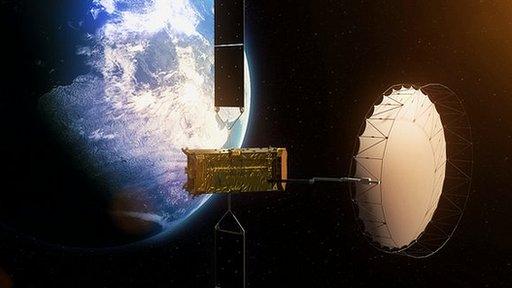Inmarsat's new network delayed by Proton rocket failure
- Published

Global Xpress and its I-5 satellites represent an investment of over £1bn ($1.6bn) for Inmarsat
Thursday's failure of yet another Russian Proton rocket is going to delay the roll-out of Britain's biggest single commercial space project.
London-based telecommunications company Inmarsat was due to use the vehicle to launch the second and third satellites in its $1.6bn Global Xpress network.
The latest Proton suffered an engine failure nine minutes after lifting off from Baikonur in Kazakhstan.
Inmarsat concedes the failure review process will impact its timelines.
The company told investors that the prospect of getting another of its I-5 Ka-band satellites in orbit by the autumn was now unrealistic.
"The cause of the failure will be assessed by a process known as the Failure Review Oversight Board ("FROB") and a report of its findings is expected to be completed in the next two months," a statement read. "While the conclusions of the FROB will be important in determining the impact on our launch schedule, we believe a delay in the planned launch of both the Inmarsat-5 F2 and F3 is now likely, which would delay the launch of GX services on a global basis."
Inmarsat said regional services delivered by the first I-5 launched in December would not be affected.
Protons have experienced an alarming deterioration in reliability in recent years.
There have now been five outright failures since the turn of the decade, with most of the problems linked to the upper-stages.
The July 2013 mishap saw a vehicle veer violently out of control just after leaving the pad and then explode as it impacted the ground a short distance away.
Manufacturer Khrunichev has had to instigate a whole-scale review of its production processes to try to identify the root causes of the poor track record.
Lost on Thursday's failed flight was the six-tonne Express-AM4R satellite, which was to be used to deliver broadband internet across Russia.
Federal space officials have suspended all future missions while the FROB conducts its investigation.
Inmarsat was expecting to loft its I-5 F2 on a Proton in the third quarter of this year. The F3 model would have followed not long after to complete the Global Xpress network.
The I-5s are high-throughput satellites that will provide telecommunications "on the go" in remote locations.
Inmarsat's principal customer base is the shipping sector, but the company also caters for any groups that need connectivity away from a fixed line.
These include oil and gas installations, the aviation sector, armed forces, aid agencies and NGOs in disaster areas, and TV news crews reporting from trouble zones.
Customers can use Inmarsat services to make phone calls, to transfer audio-visual material or simple data.
Traditionally, the company has served these customers using the L-band part of the radio spectrum. However, the new GX constellation will operate in the higher-frequency Ka-band, enabling much higher bandwidth connections - up to 50Mbps download, and 5Mbps upload.
Jonathan.Amos-INTERNET@bbc.co.uk and follow me on Twitter: @BBCAmos, external
- Published12 May 2014

- Published26 March 2014

- Published9 December 2013

- Published14 November 2013
